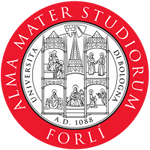Corpus-based Interpreting Studies: The State of the Art
First Forlì International Workshop

Rationale
More than 15 years have passed since the late Miriam Shlesinger called upon the Interpreting Studies community to embrace corpus-based methodologies (Shlesinger 1998). Corpus-based methodologies enable researchers to collect empirical data in quantities large enough to make reliable generalizations about interpreter performance (as opposed to studies based on anecdotal evidence); moreover, they also make it possible to analyse relevant phenomena on greater data sets than is usually the case when "manual" methodologies are used.
Miriam Shlesinger predicted that it would take time to compile such interpreting corpora and she has been proven right. Indeed, it took 6 years since the publication of her seminal paper to launch the first large-scale interpreting corpus project at the University of Bologna (2004). In 2005 the European Parliament Interpreting Corpus (EPIC) became the first on-line trilingual interpreting corpus available for research and teaching purposes: EPIC will celebrate its 10th anniversary in 2015 (Monti et al. 2005, Sandrelli et al. 2010). Other projects have followed over the last few years, but corpus-based Interpreting Studies has not developed as widely as would have been desirable, probably on account of the time-consuming nature of data collection and transcription. Today, only a handful of research centres are working on compiling interpreting corpora (Bologna-Forlì, UNINT-Rome, Trieste, Hamburg, Poznan, Ghent…) and the data available are still very limited, compared with the large quantities of corpus-based data available in linguistics and translation studies (see Straniero Sergio and Falbo 2012 for an overview of interpreting corpus projects in Italy).
Aims
The aim of this two-day workshop is to take stock of the expertise and knowledge developed in Europe and beyond around interpreting corpora. We therefore invite researchers involved in the design, compilation or exploitation of interpreting corpus data to submit an abstract for one of the following strands:
- Corpus design: what kind of data do we need to address the specific research questions of the Interpreting Studies community? What are the most suitable methodologies?
- Corpus compilation and accessibility: what procedures have been used in collecting, transcribing, indexing, tagging and aligning interpreting data? What (meta)data are already available and how can they be accessed?
- Corpus exploitation: what do we know about interpreting thanks to corpora? What specific phenomena have been highlighted? What are the benefits of corpus-derived insights for interpreter training and practice?
- Corpus developments: what new applications are there? What kind of intermodal corpora are in sight? What does the future have in store for Corpus-based Interpreting Studies?
The workshop will include a general brainstorming session on collaborative projects in the field of Corpus-based Interpreting Studies.
References
- Monti, C., Bendazzoli, C., Sandrelli A. and M. Russo (2005). "Studying directionality in simultaneous
interpreting through an electronic corpus: EPIC (European Parliament Interpreting Corpus)",
Meta, 50 (4).
- Sandrelli, A., Bendazzoli, C. and M. Russo (2010). "European Parliament Interpreting Corpus (EPIC): Methodological issues and preliminary results on lexical patterns in SI", International Journal of Translation 22 (1-2), 165-203.
- Shlesinger, M. (1998). "Corpus-based Interpreting Studies as an Offshoot of Corpus-based Translation Studies". Meta, 43 (4), 486-493.
- Straniero Sergio, F. and C. Falbo (eds) (2012). Breaking Ground in Corpus-based Interpreting Studies. Bern: Peter Lang.
|
© Copyright 2026 - Alma Mater Studiorum -
Università di Bologna - Campus di Forlì
|
Updated 4 May 2015
|